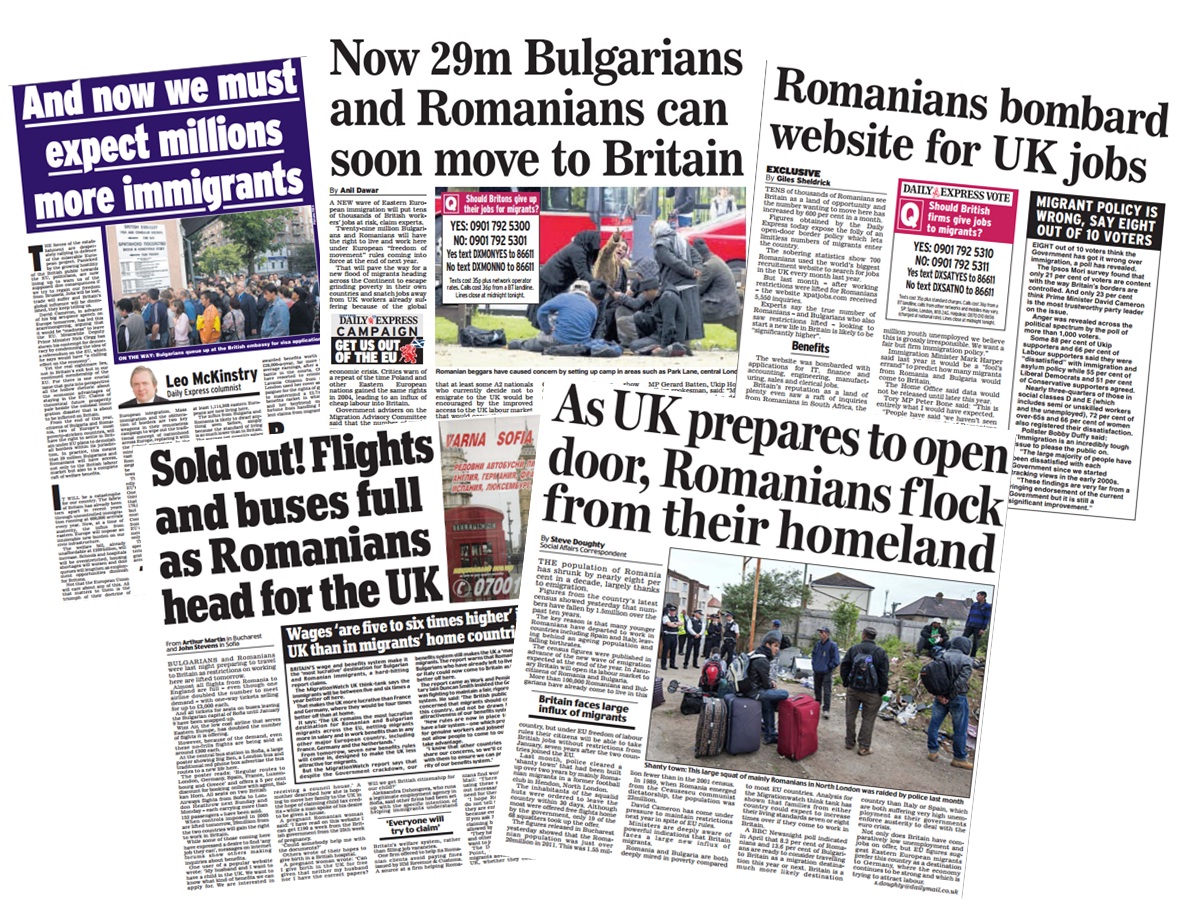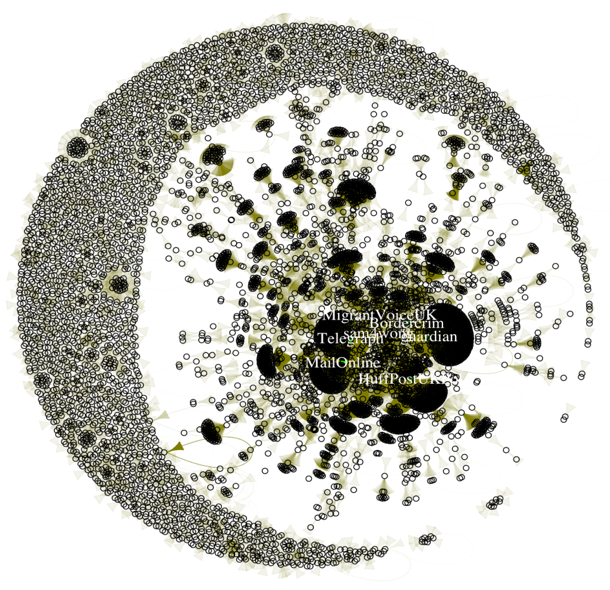Race and Nation
everyday nationhood on the Web


Collaboration
In collaboration with Bindi Shaw (University of Southampton) and Justin Murphy (University of Southampton), the project investigated the online construction of nationhood as exhibited through Twitter debates in 2 million tweets around Romanian and Bulgarian UK migration. The following is an excerpt taken from an extended abstract that was co-authored and presented at the Social Media and Society Conference, 2016.
Project Abstract
On 1st January 2014 restrictions were lifted on the migration of Romanians and Bulgarians to the UK. Leading up to this date and since then, heated debate has ensued about the impact of this migration. Discourses and images of the country being swamped by this new ‘other’ have proliferated. Our aim is to investigate how these debates were discursively constructed over the micro-blogging platform Twitter over a five month period October 1, 2013 and March 1, 2014. We draw on understandings of how the nation and national identity is reproduced in established nation-states of the ‘West. Billig (1995) sought to draw our attention to the familiar, habitual, unconscious ways in which the nation is flagged in countries like Britain, which he terms ‘banal nationalism’. But in recent years Billig has been criticized for maintaining a separation between ‘banal’ and ‘hot’ nationalism. Skey (2009) and Jones and Merriman (2009) argue that we cannot assume that nationalism is banal for everyone who lives in Britain at the current time, given the complexity of group identities. Skey, and Jones and Merriman advocate for a notion of everyday nationalism, which incorporates banal and mundane processes but may also include a variety of hotter “differences and conflicts” that affect people’s lives on a habitual basis. The notion of everyday nationalism brings into focus the ways in which people make sense of and/or resist nationalisms emanating from the state. For our research, the notion of everyday nationalism suggests two research questions:
- How do individuals, rather than politicians or the media, shape ideas of who can belong to the nation?
- Do micro-blogging platforms enable heightened nationalism and anti-immigrant discourses or do they also provide a platform for challenging such discourses?
References
Billig, M. (1995) Banal Nationalism. London: SAGE.
Jones, R. and P. Merriman. (2009) ‘Hot, banal and everyday nationalism: Bilingual road signs in Wales’. Political Geography 28:164-173.
Skey, M. (2009) ‘The national in everyday life: A critical engagement with Michael Billig’s thesis of Banal Nationalism’. The Sociological Review 57 (2): 331-346.
Sturgeon, W. (2014) The ’flood of immigrants’ that never was, May 2014. URL: http://www.themediablog.co.uk/the-media-blog/2014/05/the-deluge-that-never-was.html Archived URL: http://web.archive.org/web/20170914230731/http://www.themediablog.co.uk/the-media-blog/2014/05/the-deluge-that-never-was.html.